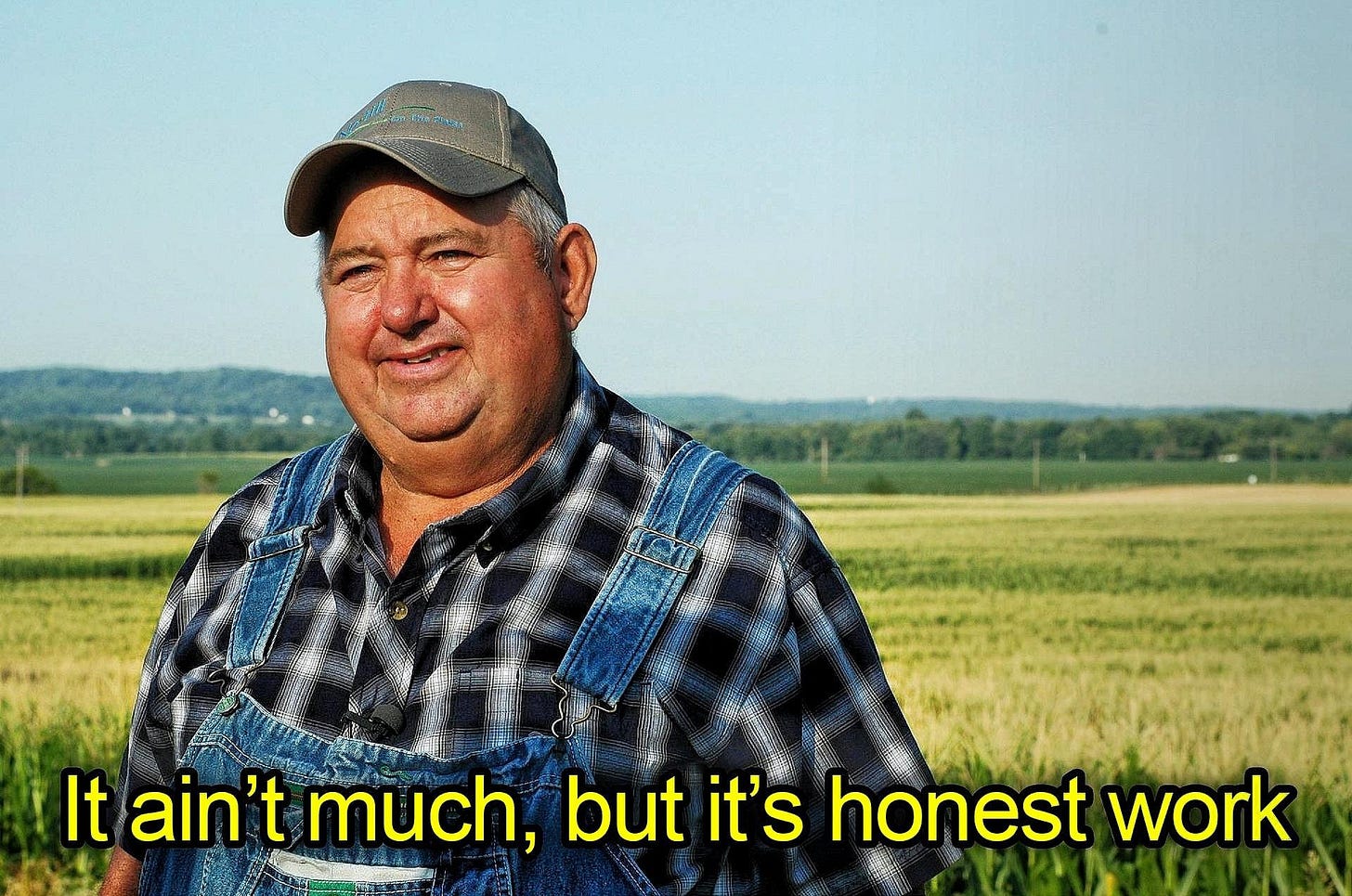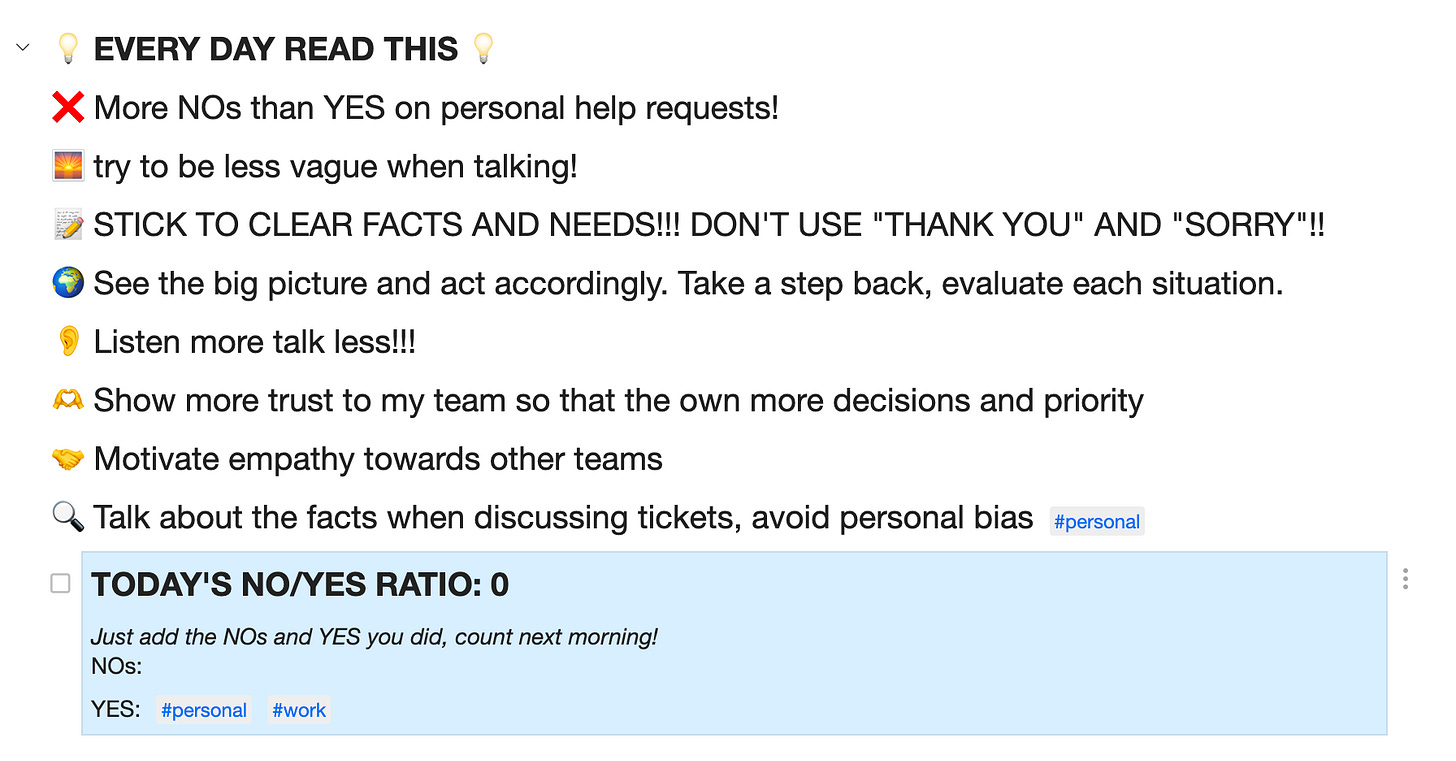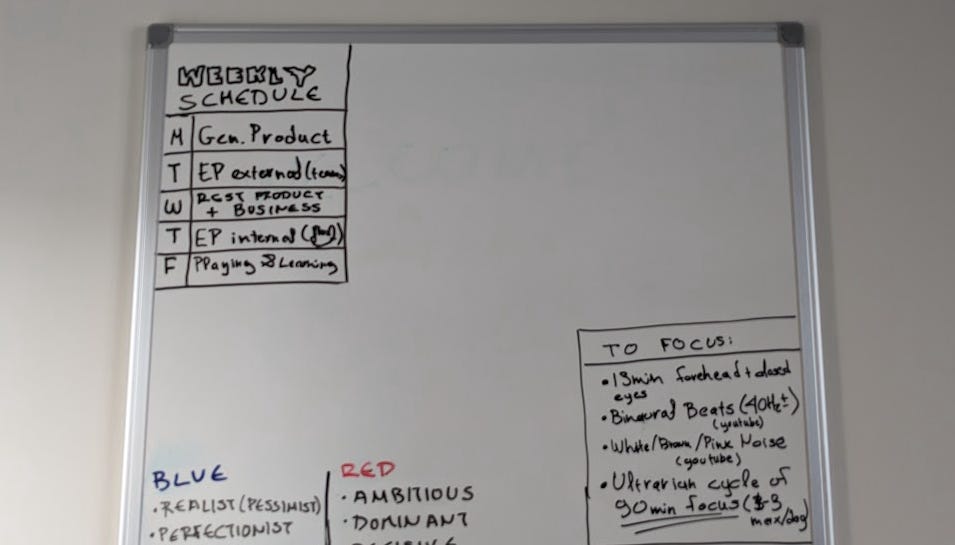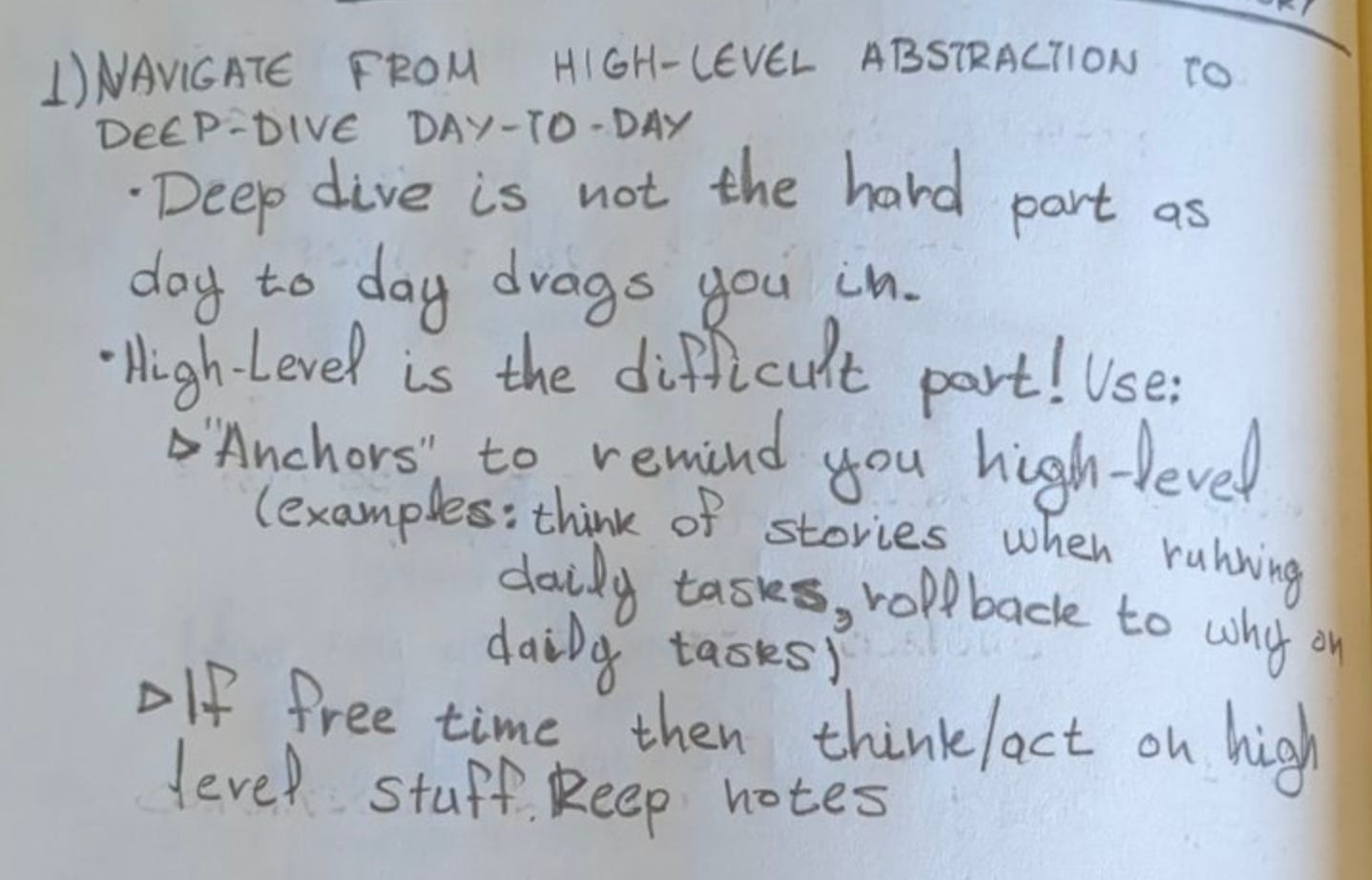Balancing Productivity: Harmony Between Small Tasks Work and High-Level Thinking
The continuous journey to achieve Zen: Creating a Symbiotic Relationship Between Shallow Work and Profound Thinking in Your Day
When planning the day, we start with high expectations of working on the bigger picture of one thing; a big project, a team goal, the vision, or strategy - if you are in a higher position or entrepreneur. That aspiration of “working on the bigger thing” is usually your motivation for making the day!
Transitioning to implementation that aspiration falls short. Reality and daily tasks come striding, 100 miles/hour, to take over your time! The pace and demand for those small tasks usually take over your full schedule, leaving no room for your aspirational thing!
In this post will be sharing some ways to balance that act between high-level thinking and deep diving. Not sharing anything revolutionary, just reminders and personal implementation.
Shallow work, or specific small tasks
That definition comes directly from Deep Work by Cal Newport. Essentially, “shallow work” is all the smaller, deep-dive tasks that come striding. This kind of work usually finds you and comes knocking whenever you are! Even if you try to avoid it, more shallow work will come your way!
In most cases, shallow work requires your time and little to no mental effort. Shallow work is the execution level of some higher concept or idea. Shallow work mostly occupies your System 1 as defined in Thinking Fast and Slow by Daniel Kahneman.
It’s not rocket science, but shallow work is “getting 💩 done!”. That’s the “doer work”, requiring persistence!
Hope you get it by now that you should not underestimate the contribution of shallow work on making things happen!
Still, shallow work will always be there and you need to control it! Here are a few ways to control shallow work.
1. Plan for shallow work goals for the day
You can plan shallow work by adding a high-level priority in your daily schedule specifically for shallow work. This could be thematic (that’s what I do) or time-based (I try to do that too, but rarely).
A thematic focus for a day could be “prioritize anything project A related for today”, or “prioritize anything development related for today”.
A time-based focus for a day could be “timebox XX minutes to work on project A”, or “timebox XX time to playtest stuff on the test environment”
With this planning, you essentially identify shallow work you WILL NOT work on for that day. e.g. if project B requires some shallow work, you can plan that for tomorrow (vs. jump right in).
Essentially, planning for shallow work is another way of…
2. Saying “No” to shallow work you want to avoid
Easier said than done, learning to say no can be a lifesaver for your daily work and tasks! I won’t dive deeper than that as I’m lame at saying no! The furthest I’ve reached to this point is documenting my Yes and Nos in my daily schedule.
3. The Unexplored by me: Let AI help with the mundane!
That’s a wishful - personal project - I have in mind for the last 6-7 months. I haven’t dived deep into this project but has a ton of potential! What if we could delegate shallow work to an LLM trained on our “thinking”? Could it achieve delivering up to 50% or 60% of the final work? This would secure us, like 50% or 60% of shallow work time! I’m thinking of tasks like:
Read my emails and identify which are the important ones. For those then draft a reply message based on *our*(sic) current knowledge on the topic in question for me to review.
Check out what’s happening in Slack (or MS Teams, as it’s kind of already supported) and draft a reply for me to review, or summarize the interesting threads.
Product Manager pre-work like Setup a draft for the core flows based on these bullet points for this new project we’re about to talk about in our 3 amigos session with the Tech Lead and Product Designer.
That would be awesome!! Yet with great power comes great responsibility. Having such a tool in our hands means that we’ll need to control the amount of shallow work we manage in our day to make room for deep work! We need to not listen to the productivity sirens and take up more shallow work in a day! As shared already, shallow work never ends!
Back on the topic, the tools/thoughts I had so far on this topic are:
As shared above, didn’t have the time to check ANY of the above! If you are familiar with a better solution please share!!
Deep Work
Closing shallow work with a bang, we now enter Deep Work. The definition by Cal Newport is “the ability to focus on a task without distractions as to maximize cognitive capabilities, allowing you to produce better quality work in less time”.
Deep work requires your full mental capacity to strategize and perform that deep thinking. This is clearly System 2 of thinking based on Thinking Fast and Slow.
Considering the invasiveness of shallow work in our day to day, deep work requires more effort to get there, so let’s see - or recap - some of the methods to get it done.
1. Deep Work, by Cal Newport
First things first, Newport has written a whole book to assist our focus! The key points can be found in the book and online, so I’m re-sharing for completeness:
Don’t Take Breaks from Distraction. Instead, Take Breaks from Focus. Focus is your default state to embrace!
Meditate productively.
Embrace boredom. Yes please do!
Quit social media. Eliminate distractions - or at least try to limit them!
Schedule your whole day, and set up an end time (Newport suggests by 5:30 PM)
2. The One Thing, by Gary Keller
That’s another book I personally use to define my deep work. The focus and deliberation that Gary Keller shares in that book are great. The whole idea is:
Define a big fat goal you want to achieve.
Break it down into steps to get there.
Further, break down each step into specific smaller goals you can achieve in a week or month.
Keep chunking the goal until you reach a goal that is daily achievable.
Considering all the shallow work invasiveness on a daily basis, this is the method I personally use to achieve something wider. Instead of trying to fit everything in a few hours or days, play the long game.
I embrace One Thing in my daily to-do by setting up a single goal I should not lose for that day! Also, since the beginning of the year, I’ve started planning my whole week in terms of goals and breaking it down into daily smaller goals.
3. Meditate and activate your mind
Cal Newport talks about the importance of meditation to get into the right state of mind for deep work. An extra method I try to apply is some advice from Andrew Huberman, specifically advice stated in this episode on focus. Following this episode I’ve noted down this fast track of getting into the focus zone:
13min forehead exercise with eyes closed
Listen to binaural beats (40Hz) on Youtube
White/Brown/Pink noise on Youtube
Ultrarian cycle of 90 minutes of focus. Repeat at max three times a day.
4. Use anchors as reminders
In most cases, shallow work is a mini step towards a higher, aspiring goal that has its roots in a big goal. A bigger goal is responsible for any shallow work task. Sometimes a bigger goal is triggered by some shallow work but you need to detect it. An example might be “It is the 4th time I’m doing the exact same thing! Could this be automated?”.
This is a technique I try to apply when engaged in shallow work, try to take a step back and think of the “why” that drives this work task. This is one of the things Jocko Willink shares as Taking a step back.
When I take that step back and see the bigger picture, I’m quick to share with my colleagues the realization - most usually in the discussion thread, other times in calls. Sharing and realization act as reminders of deep work importance. That specific time might not be the right time to drop everything and work on the higher level, but I keep an actual (not mental) note in my to-do list!
A closure summary
This post was way smaller in my mind, but it turned out way bigger! The picture above is my whole notes for this post.
If I was to summarize all of the above I’d share:
Shallow work is there for a reason but you need to control it! Don’t let it swarm all of your time! Don’t leave it completely outside your time too!
There will always be more shallow work for you to take on. Keep that in mind and make decisions on where to focus!
Deep work and concentration are important! Plan your time and try to engage daily on it!
Some interesting reads on the wild:
An excellent read on the “Process” vs. Systems & Habits way of working for a team. This stirred some thoughts on how I and the teamwork and where we want to go.
I started following Jakob Nielsen on Linkedin and his content is overall amazing! In this post, he reminds us of the 10 Usability Heuristics as Haikus.
Jeff Gothelf's article on OKRs as a way to detect dependencies
A visual by Eric Seufert on Linkedin spoke volumes to me in regards to measuring adoption in cohorts.
A reminder of the 90/10 rule in regards to project completion, by David Kadavy in his Love Mondays newsletter and Sahil Bloom. We recently did a revamp on the Team O’clock marketing page and felt the 90/10 rule, is so true!
Intrigued by a game my son bought! Chants of Sennaar






